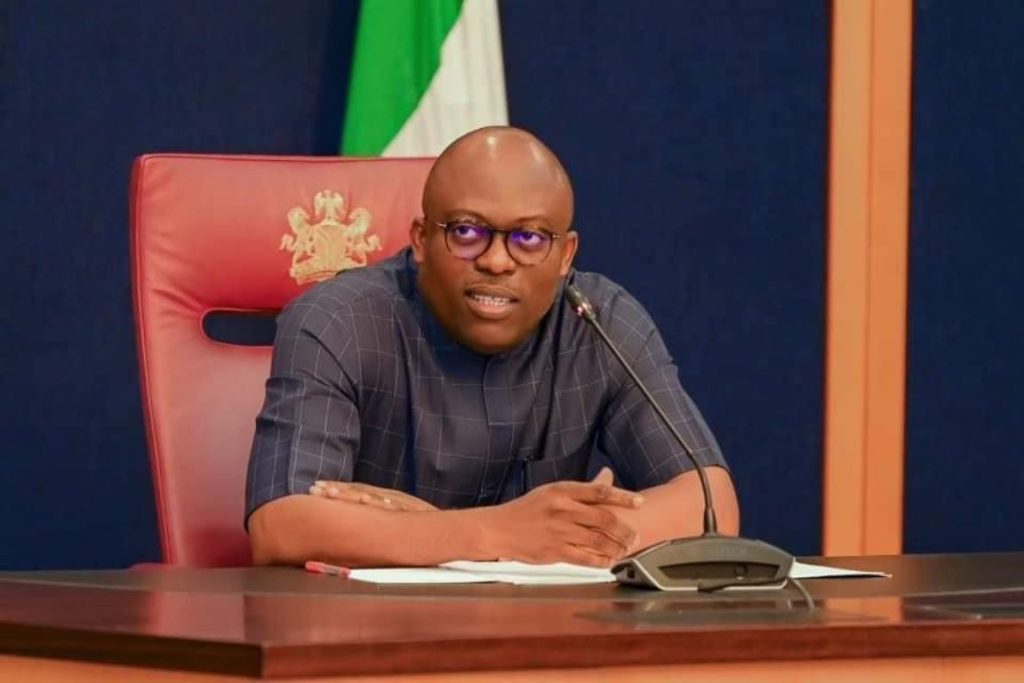Rivers State Governor, Siminalayi Fubara, has expressed surprise at the actions of the police, accusing them of attempting to disrupt the planned local government elections by allegedly invading the premises of the Rivers State Independent Electoral Commission (RSIEC).
During a media briefing at the Government House in Port Harcourt on Friday, Governor Fubara said the move was unexpected, especially since he had earlier received information that the police intended to withdraw from the local government elections. He questioned why Rivers State was being singled out, with what he described as an undue focus on the state-run electoral body.
Fubara pointed out that a court ruling from Abuja only directed the police not to provide security for the elections, and did not authorise sealing off the RSIEC office or interfering with the electoral process. He emphasised that a prior ruling from the Rivers State High Court should take precedence.

The governor stressed that the elections must proceed in accordance with the Supreme Court’s ruling, which the Federal Government is set to implement. He warned that any attempts to obstruct the elections would have serious consequences, particularly for the welfare of local government workers.
Governor Fubara called on the Inspector General of Police (IGP) to be prepared to take responsibility for any disruptions. He vowed that any effort to stop the elections would be met with firm resistance, reaffirming that the elections would proceed as scheduled and that elected officials would be sworn in. “We are prepared,” he stated.
Earlier on Friday, Fubara and his team visited the RSIEC office, where they reportedly intervened to prevent the police from allegedly taking away election materials. He explained that formal requests for security during the election were sent to the National Security Adviser, the IGP, the Department of State Services (DSS), and other security agencies, along with a copy of the Rivers State High Court judgment.
Fubara downplayed the importance of police presence at the polling units, expressing confidence that other security agencies could maintain law and order in their absence.


